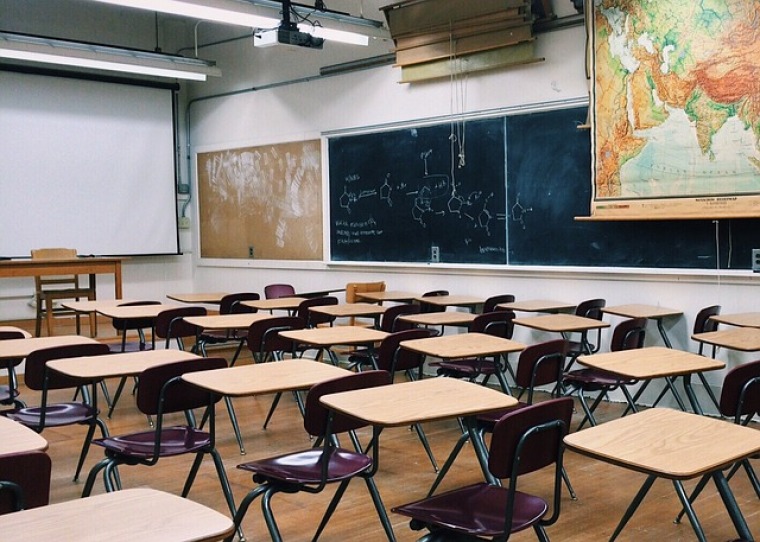Catholic schools cannot receive government funds for non-Catholic students, Canadian court rules

A Canadian court has ruled that it is illegal for the Saskatchewan government to fund non-Catholic students who attend Catholic schools in the province.
Queen's Bench Justice Donald Layh has ordered the government of Saskatchewan to stop funding non-Catholic students in Catholic schools because it violates a section of the Charter of Rights and Freedoms.
The Saskatchewan Catholic School Boards Association expressed disappointment with the decision and said that it would consider an appeal.
"We'll take some time to go over the 230-page decision, consult with our lawyers and process what this means for the division, for Catholic education in Saskatchewan, and for all of the families who choose Catholic education," the association said in a statement, according to Catholic Herald.
"This has already been a 12-year journey, instigated by the public boards, and we don't have much of an appetite to spend more on legal defense. However, we have an obligation to stand up for the constitutional rights of separate school divisions, so we are giving serious consideration to an appeal. In the event of an appeal, a final decision would be a long way down the road," it added.
Layh noted in his ruling that the Constitution Act of 1867 does not require the province to provide funds for non-Catholic students who attend Catholic schools. By doing so, Layh said that the government violates the Charter of Rights by failing to uphold its duty of religious neutrality and by failing to apply equality rights.
He argued that the constitution only protects the rights of Catholic schools "to the extent they admit students of the minority faith."
There are no official statistics on exactly how many non-Catholic students attend Catholic schools, but some estimates have indicated that as many as a third of the students in some Catholic school divisions are not Catholic.
The case began in 2005 when the Good Spirit School Division (GSSD) No. 204 sued the Christ the Teacher Roman Catholic Separate School Division (CTRCSD) and the government of Saskatchewan.
The GSSD alleged that the creation of CTRCSD, following the closure of the GSSD's Theodore Public School, did not meet the "criteria of being a separate school-serving Catholics who are the minority religion in the region."
The plaintiff also alleged that CTRCSD only started its school only to prevent children from being bussed to a nearby town because of the closure of Theodore Public School.
The court gave the Saskatchewan government until June 30, 2018 to stop the funding, but there were concerns that the ruling could be catastrophic for schools in the province. The province said that it is exploring every legal option to stop the ruling.
Dwight Newman, a Canada Research Chair in Indigenous Rights in Constitutional and International Law at the University of Saskatchewan, said that there are three possible options to reverse the ruling.
He said the province could appeal the ruling to a higher court and hope to get a different decision. The second option was to use a notwithstanding clause, which allows provincial legislatures to override certain portions of the charter.
The final option, Newman said, was to amend the constitution to allow non-Catholic students to attend Catholic schools.
Education Minister Don Morgan said that parents may be expected to pay between $8,000 to $12,000 for each student if the ruling is upheld.
 Christians don't have to affirm transgenderism, but they can’t express that view at work: tribunal
Christians don't have to affirm transgenderism, but they can’t express that view at work: tribunal Archaeology discovery: Medieval Christian prayer beads found on Holy Island
Archaeology discovery: Medieval Christian prayer beads found on Holy Island Presbyterian Church in America votes to leave National Association of Evangelicals
Presbyterian Church in America votes to leave National Association of Evangelicals Over 50 killed in 'vile and satanic' attack at Nigerian church on Pentecost Sunday
Over 50 killed in 'vile and satanic' attack at Nigerian church on Pentecost Sunday Ukrainian Orthodox Church severs ties with Moscow over Patriarch Kirill's support for Putin's war
Ukrainian Orthodox Church severs ties with Moscow over Patriarch Kirill's support for Putin's war Islamic State kills 20 Nigerian Christians as revenge for US airstrike
Islamic State kills 20 Nigerian Christians as revenge for US airstrike Man who served 33 years in prison for murder leads inmates to Christ
Man who served 33 years in prison for murder leads inmates to Christ


 Nigerian student beaten to death, body burned over ‘blasphemous’ WhatsApp message
Nigerian student beaten to death, body burned over ‘blasphemous’ WhatsApp message 'A new low': World reacts after Hong Kong arrests 90-year-old Cardinal Joseph Zen
'A new low': World reacts after Hong Kong arrests 90-year-old Cardinal Joseph Zen Iran sentences Christian man to 10 years in prison for hosting house church worship gathering
Iran sentences Christian man to 10 years in prison for hosting house church worship gathering French Guyana: Pastor shot dead, church set on fire after meeting delegation of Evangelicals
French Guyana: Pastor shot dead, church set on fire after meeting delegation of Evangelicals ‘Talking Jesus’ report finds only 6% of UK adults identify as practicing Christians
‘Talking Jesus’ report finds only 6% of UK adults identify as practicing Christians Mission Eurasia ministry center blown up in Ukraine, hundreds of Bibles destroyed: 'God will provide'
Mission Eurasia ministry center blown up in Ukraine, hundreds of Bibles destroyed: 'God will provide' Church holds service for first time after ISIS desecrated it 8 years ago
Church holds service for first time after ISIS desecrated it 8 years ago Burger King apologizes for 'offensive campaign' using Jesus' words at the Last Supper
Burger King apologizes for 'offensive campaign' using Jesus' words at the Last Supper Uganda: Muslims abduct teacher, burn him inside mosque for praying in Christ’s name
Uganda: Muslims abduct teacher, burn him inside mosque for praying in Christ’s name